Mathematics
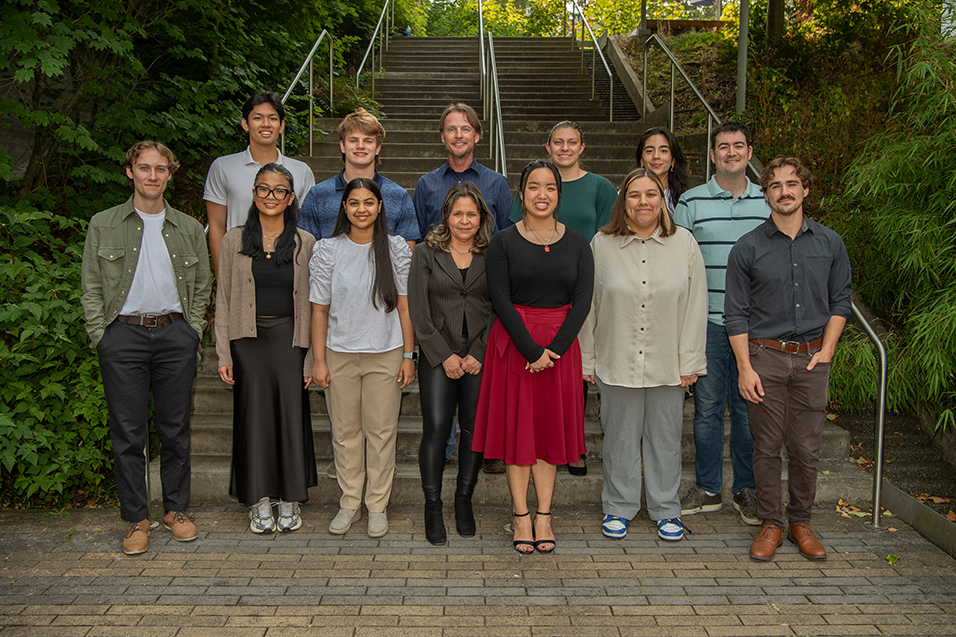
UW Bothell Mathematics REU Program
Established in 2015, the Mathematics Research Experience for Undergraduates (REU) program at the University of Washington Bothell provides a unique opportunity for undergraduate students from underrepresented groups to explore mathematical research and prepare for graduate studies. Over an 8-week summer experience, participants work on impactful research projects alongside dedicated faculty mentors, engage in professional development workshops, build lasting connections with peers and present their research results. With a focus on fostering diversity and inclusion, the program combines rigorous academics with a fun, supportive environment to inspire the next generation of mathematicians.
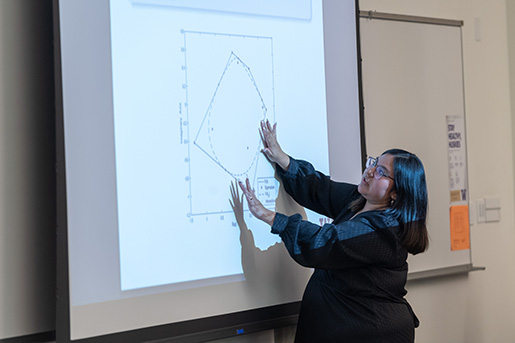
Summer 2025 research areas
- Applications of topological data analysis to genetic stock identification
- Numerical Methods for Optimization
- CT Image Reconstruction
2025 program calendar
- December 3, 2024: application opens
- February 9, 2025: priority application deadline (applications will be accepted until all positions are filled)
- March 8, 2025: offer acceptance deadline
- June 23, 2025: first day of the program
- August 15, 2025: last day of the program
Eligibility
- You must be enrolled as an undergraduate student in any academic year (freshman through senior) in the fall semester/quarter following the summer REU to participate.
- Participants must be U.S. citizens or permanent residents.
How to apply
Your application is comprised of the following:
- A completed online application.
- A personal statement.
- Your current college transcript(s).
- Unofficial transcripts from your school registrar are acceptable. If your school provides you with online access to your transcript or degree audit, a PDF printout is acceptable.
- Contact information for 2 professors or research mentors who can supply letters of reference.
All application materials must be submitted online.
The University of Washington is committed to providing access and accommodation in its services, programs, and activities. If any accommodation is needed in the completion and submission of this form please contact the Mathematics REU program contact, Dr. Casey Mann, uwbmathreu@uw.edu.
Stipends, lodging, and travel expenses
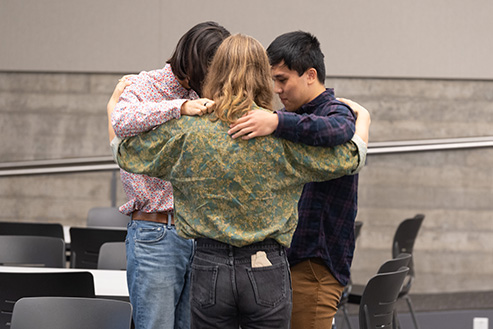
- You are paid a program stipend in the range of $2000 – $3000.
- You will live in the new UW Bothell dorms and use the dining hall at no direct expense to you. Your roommates will be participants in the Mathematics REU at UW Bothell and other summer programs.
- The program includes funding for students to travel to conferences to present their research from the program.
Local and regional resources
Achievements
- Loreto, M., Humphries, T., Raghavan, C., Wu, K., & Kwak, S. (2024). A new spectral conjugate subgradient method with application in computed tomography image reconstruction. Optimization Methods and Software, 1-24.
- 1st place Presentation: Harper Hults, A Markov Partition for the Penrose Shift, 14th annual Northwest Undergraduate Mathematics Symposium, Portland State University, November 12, 2023
- M. Loreto, Y. Xu, and D. Kotval, A numerical study of applying spectral-step subgradient method for solving nonsmooth unconstrained optimization problems, Computer and Operation Research, Vol. 104, pp. 90-97, 2019
- Rebekah Aduddell, Morgan Ascanio, Adam Deaton, Casey Mann, Unilateral and equitransitive tilings by equilateral triangles. Discrete Mathematics Volume 340, Issue 7, July 2017, Pages 1669-1680
- 2nd Place Poster Presentation at the 2017 SIAM Pacific Northwest Conference, Oregon State University (2017 Nonlinear Optimization Group)
- Outstanding Posters at the Joint Mathematics Meetings Student Poster Session (top 15% in each subject area)
- 2017, A Spectral Subgradient Method for Non-Smooth Optimization, David Kotval, Yiting Xu, Mentored by Milagros Loreto
- 2016, Unilateral and Equitransitive Tilings by Triangles, Adam Deaton, Rebekah Aduddel, Morgan Ascanio, Mentored by Casey Mann
REU in the news
- Undergraduates immerse themselves in research
- Summer research strengthens math majors
- Student poster selected at math conference
- First cohort completes math REU
Questions?
For questions, please contact Dr. Casey Mann, uwbmathreu@uw.edu
Research mentors and project descriptions
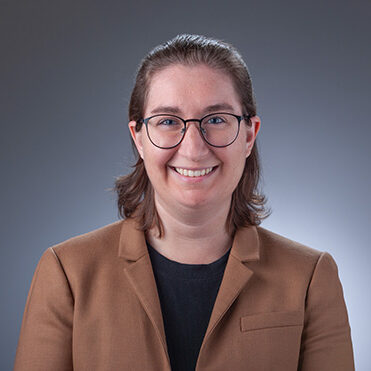
Elizabeth Field
Project: Applications of topological data analysis to genetic stock identification
The southern resident killer whale (SRKW) is an endangered species that lives in the Salish Sea. Conservation efforts of the SRKW depend, in part, on increasing the population of prey that the SRKW feeds upon throughout the year. In order to determine which individual populations of salmon should be targeted at certain times of year to increase the availability of prey, it is essential to identify which individual stocks of salmon the SRKW feeds upon at different times of the year. The goal of this project is to explore ways in which the tools of topological data analysis can be used to identify the genetic stock of individual prey from genotype data coming from SRKW fecal samples.
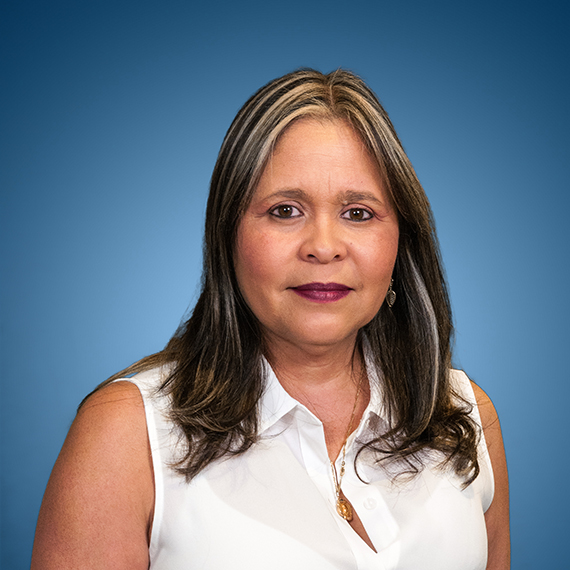
Milagros Loreto
Project: Numerical Methods for Optimization
The Barzilai-Borwein (BB) method, published in 1988, produced a revolution in the numerical optimization community since its delayed (or spectral) step length, which yields non-monotone-behavior, significantly accelerates the convergence of the classical gradient method. Recently, with my collaborators, I extended the BB method to solve non-smooth, unconstrained optimization problems, resulting in several publications. Also, to my knowledge, this was the first extension of the BB method for non-smooth optimization. A characteristic of the BB method on the smooth case is that it may produce too long steps. Many researchers have addressed this behavior by introducing stabilization techniques. In the non-smooth case, the instability of the step length is even more drastic for some problems, and sometimes the step may be undefined. This project explores stabilization parameters for the non-smooth quadratic case. Additionally, I plan to examine heuristics that could improve the step’s numerical performance.
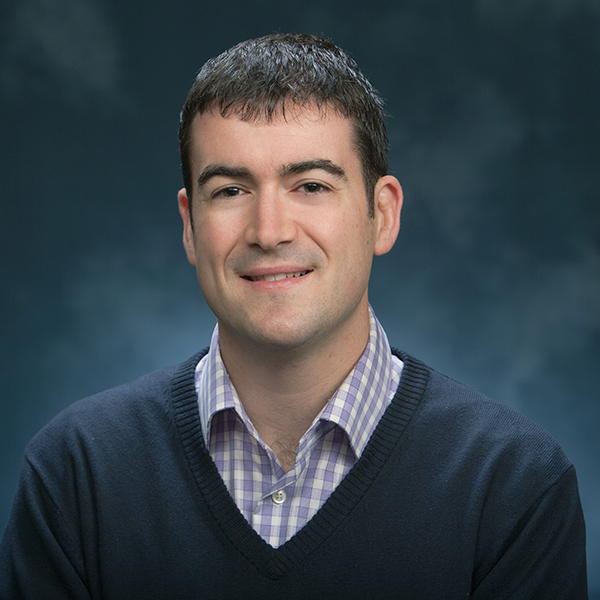
Thomas Humphries
Project: CT Image Reconstruction
Computed tomography (CT) imaging is a classical example of an inverse problem: given a set of indirect measurements of some object, and a physical model for how those measurements were generated, can we recover an image of the underlying object? While over a million CT scans are performed in clinics around the world every day, a number of challenging problems in the field still remain, such as sparse-view and limited-angle imaging, low-dose imaging, metal artifact correction, and material decomposition. Below I describe two directions of research which are suitable for an REU project. Students working on a project in this area can expect to gain exposure to basic concepts in CT imaging and imaging science more broadly, programming experience in Matlab or Python, and possibly exposure to deep learning frameworks such as TensorFlow or PyTorch. Some programming experience and a basic understanding of linear algebra and multivariable calculus are recommended.
Mathematics REU cohorts

Funded by National Science Foundation Award #2150511
